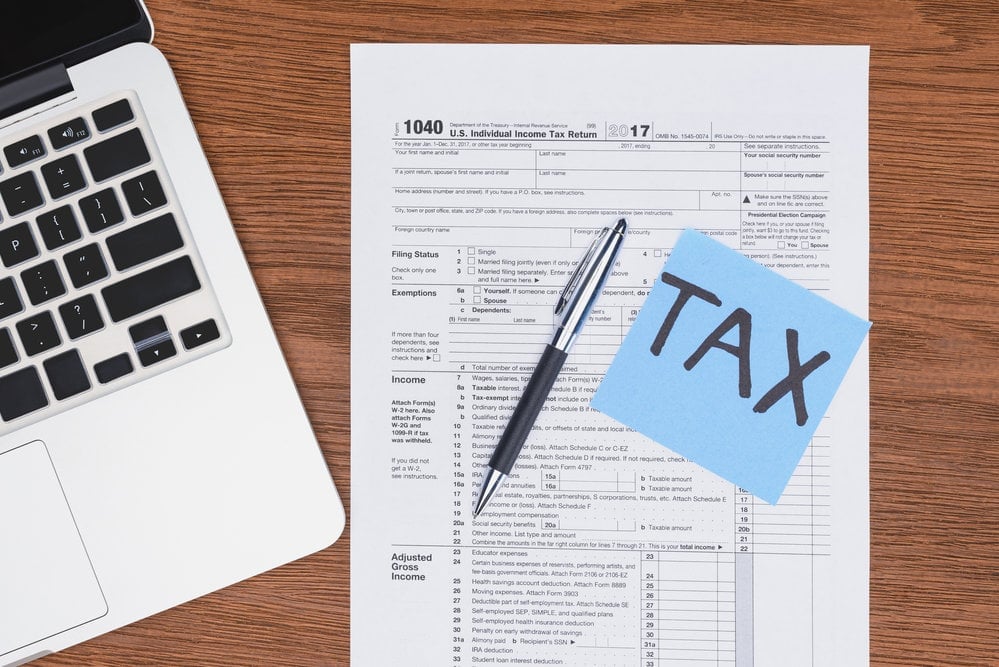Tax season is high when individuals and businesses evaluate their financial activities to conclude their tax liabilities. Typically, most taxpayers aim to ensure accuracy in their calculations. However, there may be instances where you suspect that you’re making a tax overpayment.
Discovering a tax overpayment can be confusing and somewhat frustrating. Nonetheless, understanding the steps can help you navigate the process effectively to figure out what went wrong.
Let’s get your hands on six valuable tips to deal with a suspected tax overpayment. These tips will enable you to take appropriate actions and potentially recover the excess amount.
1. Review Your Tax Return
The first step in addressing a suspected tax overpayment should be carefully reviewing your tax return. So, go through all the relevant forms, schedules, and supporting documentation to ensure accuracy in tax calculation.
Find out possible mistakes, missed deductions, or credits that could have resulted in an overpayment. Look for incorrect calculations, misplaced numbers, figures, or overlooked deductions.
You can reverse sales tax calculator apps to determine any confusing or shallow tax payment from selling your products or services. If you discover any discrepancies, note them for further investigation.

2. Consult with a Tax Professional
If you suspect a tax overpayment and are unsure about the appropriate course of action, it is advisable to seek guidance from a tax professional. An experienced tax advisor or certified public accountant (CPA) can provide valuable insights and expertise.
They can review your tax return, identify potential errors or missed opportunities, and guide you through rectifying the situation.
Even if you’re seeking tax optimization to reduce your tax burden, consulting a professional authority is wise since they can help you draw the thin line between tax optimization and fraud.
3. Gather Supporting Documentation
Gathering all relevant supporting documentation is vital to deal with a possible tax overpayment. This includes W-2 forms, 1099s, receipts, bank statements, and other records supporting your claims.
These documents will help you build a strong case to substantiate your tax adjustment or refund request.
4. File an Amended Tax Return
You may need to file an amended tax return to determine errors or omissions leading to a tax overpayment. The Internal Revenue Service (IRS) allows taxpayers to correct mistakes by filing Form 1040X, Amended U.S. Individual Income Tax Return.
This form lets you update your original return with the correct information and explains the necessary changes.
Complete the form as accurately as possible, include all necessary attachments, and submit it within the appropriate time frame to maximize your chances of a successful claim.
5. Communicate with Tax Authorities
In cases where you suspect a tax overpayment but can’t tell specifically what went wrong, it’s time to communicate with the relevant tax authorities.
The IRS (Internal Revenue Service) or your local tax authority can provide proper guidance and answer any questions you may have regarding your situation.
Contact them through their helpline, visit their website, or schedule an appointment to discuss your concerns and seek clarification.
6. Keep Track of Deadlines and Refund Status
When dealing with a suspected tax overpayment, staying organized and keeping track of important deadlines is imperative. Note the due dates for filing an amended return or requesting a refund.
Besides, regularly check your refund status if you’ve already submitted a claim.
The IRS and many tax authorities provide online tools to track the progress of your refund. These tools ensure transparency and allow you to address any potential delays or issues promptly.
Is There Any Benefit of Overpaying Your Tax?
While overpaying your taxes may not provide immediate financial benefits, there are a few potential advantages to consider:
- Avoiding Underpayment Penalties: By intentionally overpaying your taxes, you can ensure that you meet your tax obligations and avoid potential underpayment penalties.
These penalties are typically assessed if you haven’t paid enough in taxes throughout the year, either through withholding or estimated tax payments. Overpaying can act as a safeguard against such penalties.
- Simplifying Estimated Tax Payments: If you are self-employed or have income not subject to withholding, estimating and making quarterly tax payments can be complex.
By overpaying your taxes, you can simplify the process by making a larger payment up front, potentially reducing the need for quarterly estimated tax payments.
- Accrual of Tax Credits: Overpaying your taxes may result in a larger tax refund when you file your return. This can be advantageous if you are eligible for refundable tax credits, meaning they can exceed your tax liability.
Examples of refundable tax credits include the Earned Income Tax Credit (EITC) and the Additional Child Tax Credit. Overpaying allows you to accrue these credits and potentially receive a larger refund.
- Peace of Mind and Financial Planning: Some individuals prefer to overpay their taxes intentionally to ensure they don’t owe a significant amount at tax time. By overpaying, you can have peace of mind knowing that your tax obligations are already met.
Moreover, if you use your tax refund as a part of your financial planning strategy, intentionally overpaying can help you save and budget more effectively.
Despite these potential benefits, weighing them against the opportunity cost of having those funds available throughout the year is important. Overpaying taxes means that you are providing the government with an interest-free loan.
Remember, consulting with a tax professional or financial advisor can provide personalized guidance based on your circumstances.
End Note
Discovering a suspected tax overpayment can prove to be a cumbersome experience. However, it’s crucial to take corrective actions to reverse the situation.
So, carefully review your tax return, seek timely professional advice, and follow the appropriate procedures. Thus you can increase the chance of recovering the excess amount and ensuring your tax obligations are fulfilled.



